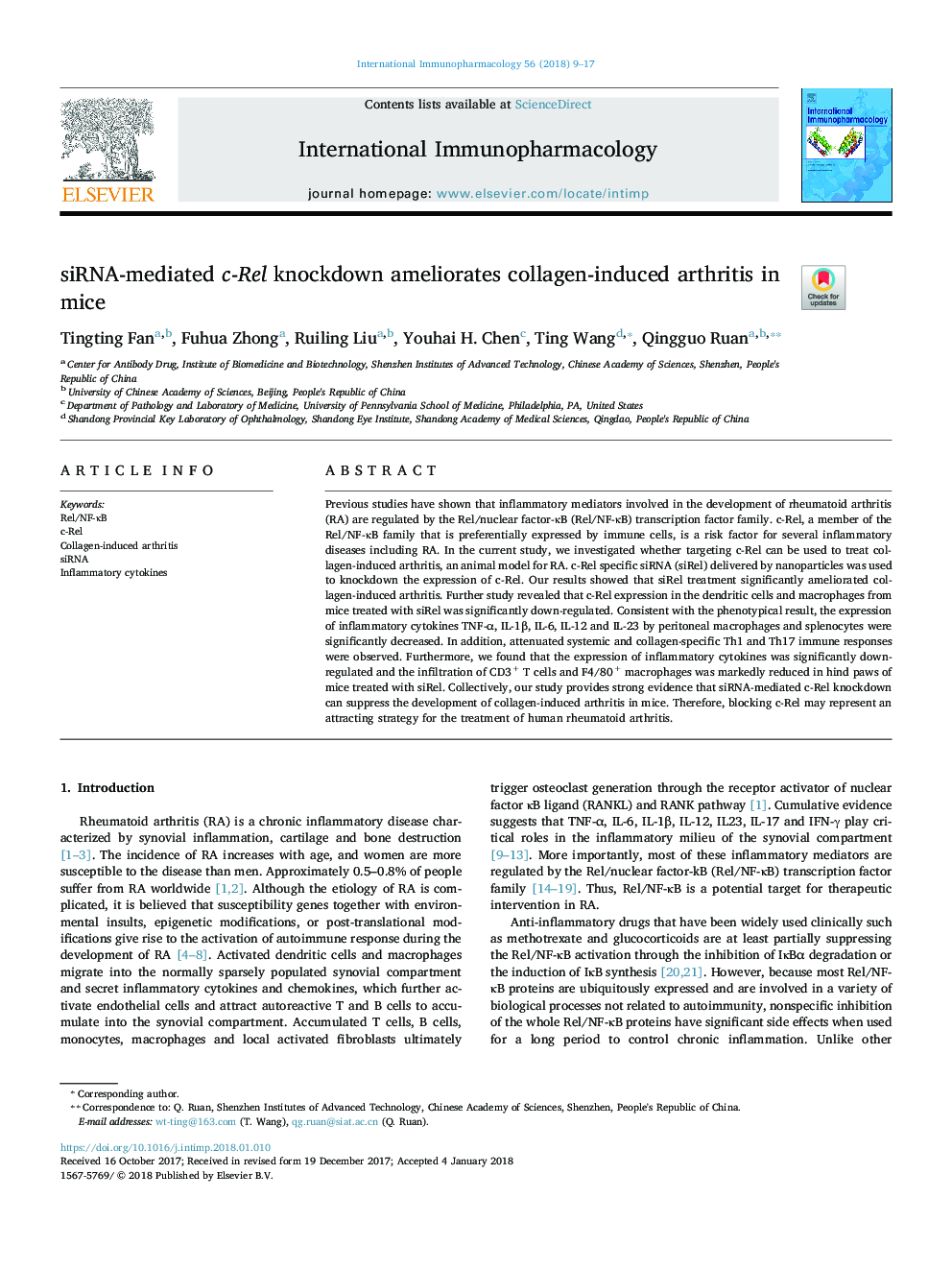| Article ID | Journal | Published Year | Pages | File Type |
|---|---|---|---|---|
| 8531316 | International Immunopharmacology | 2018 | 9 Pages |
Abstract
Previous studies have shown that inflammatory mediators involved in the development of rheumatoid arthritis (RA) are regulated by the Rel/nuclear factor-κB (Rel/NF-κB) transcription factor family. c-Rel, a member of the Rel/NF-κB family that is preferentially expressed by immune cells, is a risk factor for several inflammatory diseases including RA. In the current study, we investigated whether targeting c-Rel can be used to treat collagen-induced arthritis, an animal model for RA. c-Rel specific siRNA (siRel) delivered by nanoparticles was used to knockdown the expression of c-Rel. Our results showed that siRel treatment significantly ameliorated collagen-induced arthritis. Further study revealed that c-Rel expression in the dendritic cells and macrophages from mice treated with siRel was significantly down-regulated. Consistent with the phenotypical result, the expression of inflammatory cytokines TNF-α, IL-1β, IL-6, IL-12 and IL-23 by peritoneal macrophages and splenocytes were significantly decreased. In addition, attenuated systemic and collagen-specific Th1 and Th17 immune responses were observed. Furthermore, we found that the expression of inflammatory cytokines was significantly down-regulated and the infiltration of CD3+ T cells and F4/80+ macrophages was markedly reduced in hind paws of mice treated with siRel. Collectively, our study provides strong evidence that siRNA-mediated c-Rel knockdown can suppress the development of collagen-induced arthritis in mice. Therefore, blocking c-Rel may represent an attracting strategy for the treatment of human rheumatoid arthritis.
Related Topics
Life Sciences
Immunology and Microbiology
Immunology
Authors
Tingting Fan, Fuhua Zhong, Ruiling Liu, Youhai H. Chen, Ting Wang, Qingguo Ruan,
